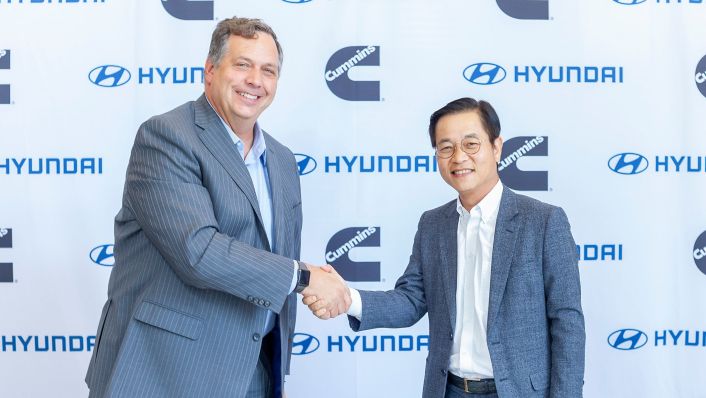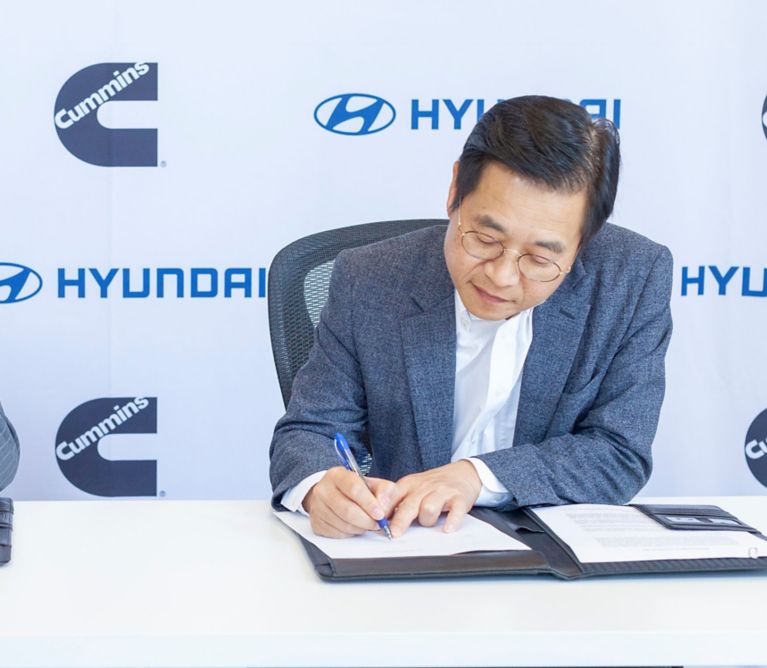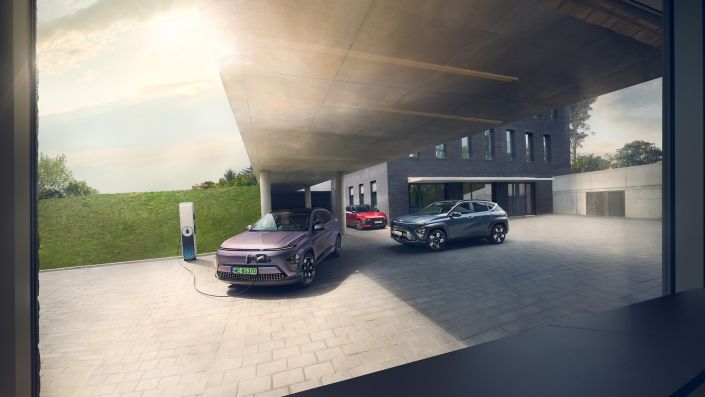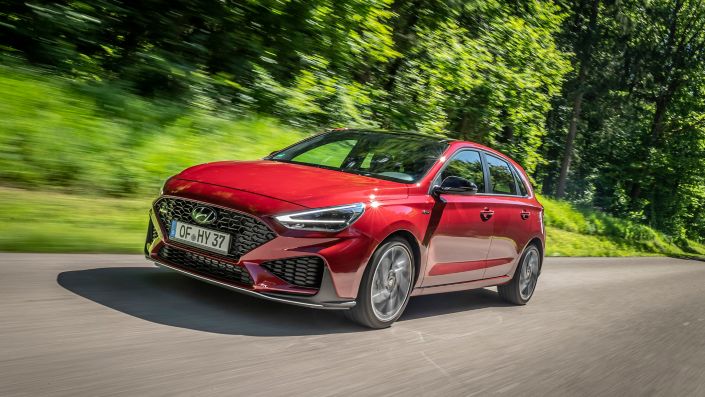- Companies sign MOU to jointly develop and commercialize electric and fuel cell powertrains combining Hyundai fuel cell systems and Cummins’ electric powertrain, battery and control technologies
- Initial focus to be on North American commercial vehicle market; companies to further investigate and pursue other areas of collaboration
Materiał prasowy
-
Pobierz
-
Zdjęcia
These new powertrains are expected to be developed by combining Hyundai’s fuel cell systems with Cummins’ electric powertrain, battery and control technologies; the initial development will be focused on the North American commercial vehicle market, including working with North American OEMs on the integration of these systems into their vehicles.
The companies will also explore ways they can work together to develop next generation fuel cell systems, and have each committed to assign a team of individuals to investigate and pursue other areas of collaboration.

This partnership is a terrific opportunity for both companies to leverage our respective strengths and create new opportunities to grow and broaden the product portfolio we bring to our customers. We’ve made significant investments over the past year to accelerate our fuel cell capabilities including our acquisition of Hydrogenics and this partnership is another step forward.
With Hyundai’s global leadership in fuel cell systems coupled with Cummins’ unparalleled electrified powertrain technologies, we expect this partnership to leave a mark in the commercial vehicle market. Collaborations such as this will enable us to further diversify our business, as well as reinforce our global hydrogen leadership through sales of new and existing Hyundai fuel cell systems.
This partnership provides a springboard for Hyundai Motor Company to increase its presence in the North American commercial vehicle market, and Cummins to enhance its electrified power product portfolio by adding Hyundai’s advanced fuel cell technologies.
The new collaboration may extend beyond the commercial vehicle market, as the companies will also evaluate the development of fuel cell power generators. The availability of reliable back-up power generation to prevent data loss in emergency situations is a business-critical requirement for many organizations. Fuel cell back-up power generation is attractive for its reduced carbon footprint.
A developing global fuel cell market
The MOU comes at a time of heightened demand for fuel cell technology. Hydrogen can be produced from renewable sources, stored economically, and deployed for a diverse range of industrial and residential energy-generation applications; as well as used in fuel cell passenger cars and commercial vehicles. Energy experts predict hydrogen will become increasingly important in meeting fast-growing global energy demand, while also supporting efforts to drive down carbon emissions from energy generation.
Hyundai Motor is a world leader in the development of hydrogen fuel cell technology, having opened the world’s first commercial production facility for fuel cell vehicles in 2013. In the same year, the company became the world’s first automaker to commercialize fuel-cell electric vehicles with the introduction of ix35 Fuel Cell (also known as Tucson Fuel Cell in some markets). The NEXO, Hyundai’s second-generation fuel cell electric vehicle with a range of over 609 kilometers, is a versatile, three-row SUV that emits clean water vapor and even purifies the air while driving.
Hyundai fuel cell systems are comprised of fuel cell stacks which convert stored hydrogen into electricity, as well as other sub-components — collectively referred to as balance of plant (BoP) —for thermal management and air supply among other integral processes for power generation.
Cummins is a world leader in advanced powertrains and in 2018 launched its Electrified Power business segment, which designs and manufactures fully electric and hybrid powertrain systems along with innovative components and subsystems to serve commercial markets as they adopt electrification. To date, the business has introduced complete electrified powertrain solutions in six markets across seven applications and continues to launch market leading products with customers across the world.






